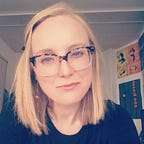Saving the oceans from a landlocked country
How Eleanor Spencer is finding ‘ideas to save the sea’, 483 kilometers away from the nearest coast.
Eleanor Spencer has never been a typical millennial; she never got into One Direction or Justin Bieber and she doesn’t like avocado toast. But there is one thing she has in common with her peers: an addiction to Instagram.
“Last night’s post did well; it got 22 likes,” she said to me while preparing her yoghurt and berry muesli one morning. “People seem to like the new layout.”
She knows these numbers won’t shatter the Internet, but Eleanor has a bigger goal in mind: she is the founder of @ideastosavethesea, an Instagram account that aims to protect and conserve the world’s marine ecosystems by addressing common ocean misconceptions.
The ocean makes up 70% of the Earth’s surface. It is responsible for many of the basic systems that we rely on; it regulates the weather and the climate, absorbs carbon dioxide and produces half of the oxygen we breath. But thanks to decades of overfishing, pollution, habitat and biodiversity loss, as well as the many consequences of climate change, they are at risk of failing.
World Oceans Day estimates that there is a critical need to protect at least 30% of our ocean by 2030 to restore the world’s oceans.
What does it take to save our oceans?
“I have always felt the best way to improve our oceans is through more effective communication — without it, misconceptions about the oceans are created. This can hinder conservation efforts due to a lack of public interest and subsequently, a lack of funding,” she told 1 Million Women in STEM.
That is why @ideastosavethesea focuses on spreading interesting facts and information about life under the waves.
Each week, Eleanor picks a new topic — cuttlefish, seagrass and COVID-19 have been among some of her most recent posts — and addresses some of their common #oceanmisconceptions. All of her information is sourced, attributed and tagged to the relevant research papers or organizations so that people can find more information on the subject.
In the final post of the week, she selects a non-governmental organization (NGO) or research team working in the area to highlight how people around the world are working to conserve and preserve our oceans.
Impacting change from a distance
But the biggest misconception Eleanor wants to change is that saving the oceans is the sole responsibility of people in countries with a coast. She herself lives in landlocked Switzerland, 483 kilometers away from the nearest coastal town.
“People think that the ocean doesn’t affect them — especially if they don’t live within reach of a beach or open water,” Eleanor said. “But it is responsible for all life on Earth, so landlocked countries still have a big impact on the sea.”
Her hometown of Basel, Switzerland, for example, lies on one of the biggest rivers in Europe: the Rhine. It was recently found to have one of the highest levels of microplastics pollution in the world which is a serious issue for marine conservation, given that as much as 80% of microplastics found in river systems end up in oceans.
But Basel is just one city on one river in Europe. Additional global efforts — including those by other landlocked countries — are required to help conserve marine life and save our marine ecosystems.
In a recent post, she highlighted that landlocked Rwanda was the first country to ban single-use plastic bags.
That is why social media accounts like @ideastosavethesea help to spread an important message.
“We can only change our behaviour when we understand the impact of our choices — that is why I love talking to the public about the oceans and life within them. People are engaged and passionate once they are aware,” she said.
But the first step towards engagement is not always easy.
The @ideastosavethesea Instagram account currently has 148 followers, but Eleanor is not deterred. “It has been difficult and it can be really exhausting at times; each post takes a lot of time to plan, research, prepare and publish. But with every new follower and like, I know that I am making a difference,” she said.
So every night at 10pm Central European Time she hits publish on another post — and with that, another #oceanmisconception is busted.
